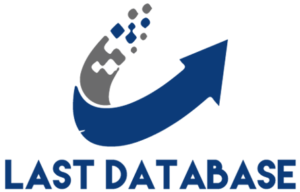Whether you’re excited, curious, or dreading the rise of artificial intelligence (AI), it’s starting to show up more and more in different areas, including marketing.
As an emerging technology, AI is already playing a pivotal role in fields like medicine, science, engineering, advertising, and data analysis.
Just look at how you are already benefiting from AI with the likes of Alexa, Siri, Cortana, and Google Assist. And that’s only the start.
Computers are expanding capabilities, learning from various stimuli, and responding in human-like ways like never before.
While not everyone can agree on the various advantages and disadvantages of AI, it is here to stay, so learning all you can about it will help you use it to your advantage now or in the near future.
This blog post will cover artificial intelligence’s pros and cons, but before that, let’s understand exactly how it works.
How Does Artificial Intelligence Work?
No longer a futuristic concept, machines with AI country wise email marketing list capabilities now do things previously restricted to the workings of the human brain.
Essentially, artificial intelligence allows a computer to learn and think (almost) on its own. Obviously, while AI can be trained to process and analyze data, it does not possess the same cognitive abilities as the human brain.
But how exactly does it work?
It all starts with designing the AI to meet a specific goal. From there, it is trained on available data as it learns how to best achieve the given goal.
When it reaches a level of learning, the AI then takes on the data independently. Then, after analyzing all the data, AI makes predictions based on what it finds.
Going forward, it uses what it learns to improve its approach. In other words, it gets smarter and smarter
This can be good or could go terribly wrong down the road. Yet, today, it offers a set of pros and cons you and your organization need to know now.
While AI continues to evolve and learn, bringing significant efficiencies to many processes, it’s essential to remember the unique value of human input. As Giu Caltabiano, VP of Marketing at Rock Content, explains: At Rock Content, we believe that AI can make our marketplace smarter and more efficient — while still relying on human creativity to produce the most captivating content.Interactive Ebook: The Impact of Artificial Intelligence on Content Marketing
Pros of Artificial Intelligence (AI)
The pros of AI applications may revolutionize sectors or industries going forward in profound ways, including the following:
1. Diminishes Human Error
Humans can make mistakes, but computers, if programmed properly, will make fewer mistakes in certain areas.
Since AI decisions come from compiled data with designed algorithms, errors are reduced, accuracy is increased, and precision is possible.
However, it is important to note that humans are responsible for designing and programming the algorithms.
While AI can reduce certain types of errors, it is not immune to its own limitations and can make mistakes or produce biased outcomes based on the data it is trained on.
Facilitates Faster Decision-Making
Finding ways to save time by making the advantages of coworking spaces faster decisions is always valuable. AI can do this for you.
AI works alongside various technologies to aid machines in making those decisions faster than many human workers.
The more decisions AI makes, the more it has to pull from for future decision-making, improving the process.
3. Offers Continual 24/7 Availability
AI (almost) never rests or requires sleep, while the human body and mind need rest to continue to function at optimal levels.
I said “almost” because, while AI systems can operate continuously, they still require regular maintenance, updates, and occasional downtime for maintenance and optimization.
However, this almost continual availability can make a huge impact on increases in your company’s productivity.
4. Lessens Risk
A huge advantage of AI is it can take on risky tasks which, for humans, would be extremely hazardous.
This minimizes the risks involved in certain endeavors
For example, AI robots can mine for coal, explore thailand lists the deepest depths of the sea, defuse a bomb, and even enter a volcano.
5. Automates Repetition
Repetitive work and tasks remain part of many jobs these days, often not utilizing the highest potential of human workers.
AI can automate repetition in a variety of ways, such as for manufacturing tasks and responding to emails.
Essentially, by automating repetitive jobs, you can focus on becoming more productive, freeing you to focus more on creativity or other areas requiring uniquely human skills.
6. Provides Digital Assistants
Today, many organizations use digital assistants for customer interactions.
This one act alone can significantly reduce the need for excessive customer service staff.
For example, the rise in the use of chatbots already proves how useful they can be in directing customers to the information needed. Another is the rising voice bot to help with queries.
AI technology might get to a point where you may not even be able to determine if you are chatting with a chatbot in some circumstances.






